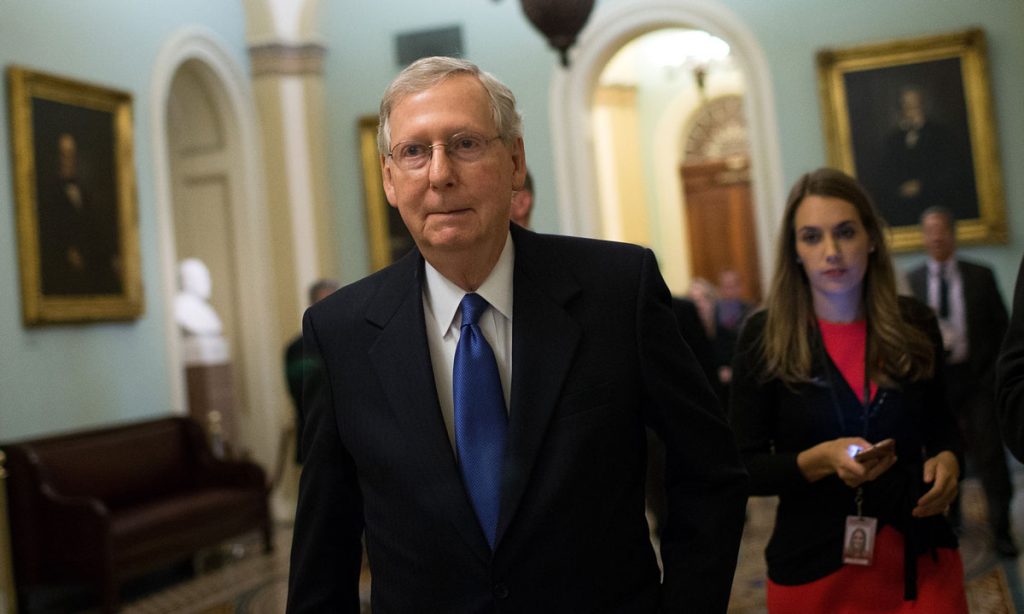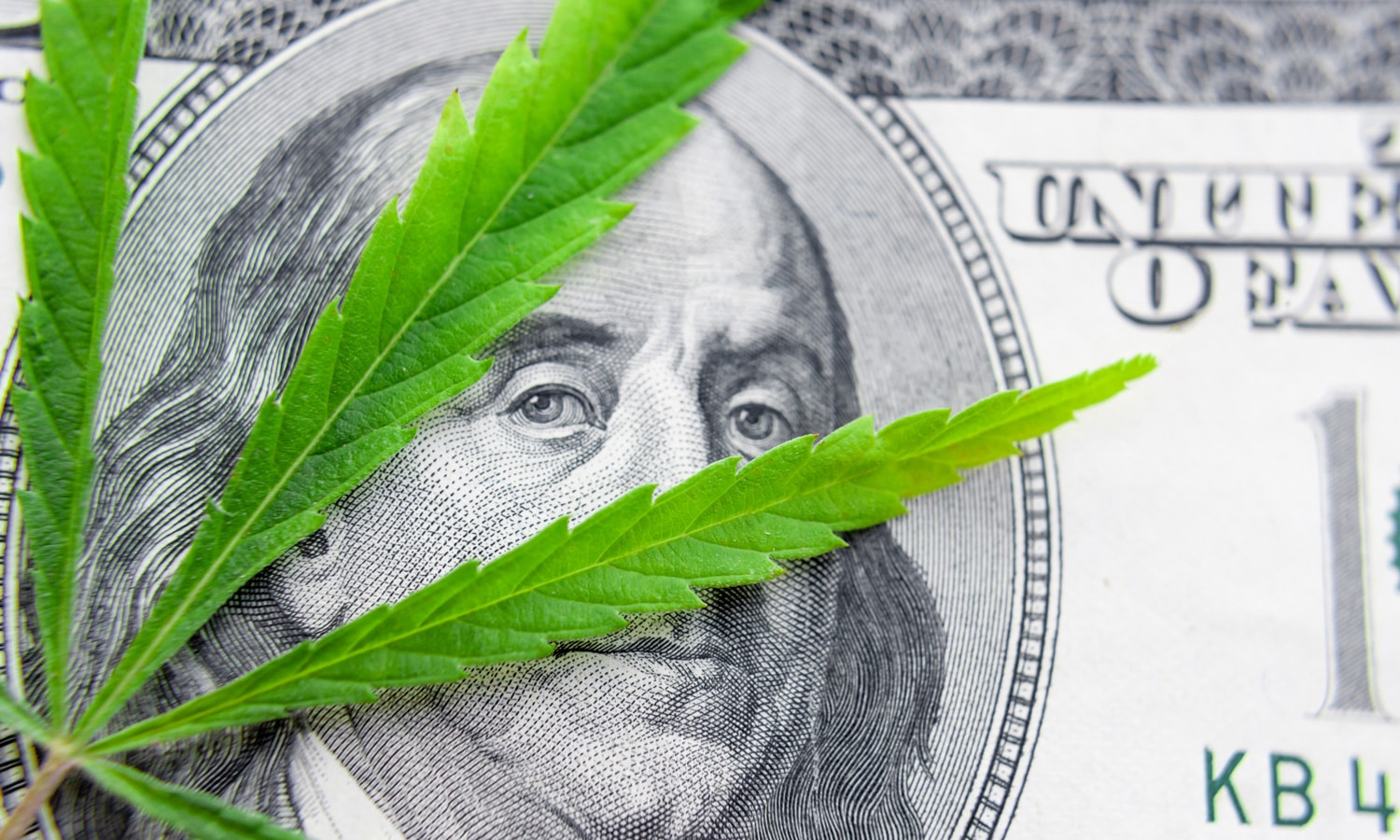Senate Majority Leader Mitch McConnell isn’t at all interested in helping forward the legal weed movement. Not one bit.
The cannabis industry is in a position where it must now abandon all hope that its precious marijuana banking bill (SAFE Act) is going to make it through Congress before the end of the year.
Many were holding on to a smidgen of faith that, regardless of whether the Republican-dominated Senate, and specifically Majority Leader Mitch McConnell, wanted to help further the progress of legal marijuana in the United States, their commitment to helping the industrial hemp trade get a fair shake would be enough to guarantee its passage. However, the system found a way to throw hemp farmers a bone without so much as giving legal weed slingers the time of day.
The SAFE Act was designed to give banks permission to do business with the cannabis trade. Nothing more. Although the marijuana sector is excited about the implications of the measure and what it means for the state-by-state legalization model that has been building momentum for the past several years, the language really only makes financial institutions prosecution proof. It would no longer allow the DEA and the FBI to swoop in and charge them for money laundering because they accepted money from a business sector that sells this Schedule I dangerous drug.
The only problem was that as soon as the Democratic-controlled House approved the bill earlier this year, there wasn’t a chance of it getting any floor time in the Senate. McConnell, the gatekeeper to the upper chamber, isn’t at all interested in helping forward the legal weed movement. Not one bit. Furthermore, in spite of the cause, he is less than thrilled about assisting Democrats in spotlighting their agenda. So, the SAFE Act, by all accounts, was a dead issue from the time it landed there. Still, some believed that it might see some consideration because of hemp.
RELATED: The MORE Act Legalizing Marijuana Is Doomed — Here’s Why
Last year, McConnell championed a measure that eventually led to the re-legalization of industrial hemp production in the United States. This deal, which was packaged in a broader Farm Bill, was signed sealed and delivered by President Trump at the end of 2018. But in spite of this move, hemp producers have continued to experience hassles this year when trying to establish banking services. Some cannabis industry folks thought that the lack of banking access for the hemp trade might prompt McConnell to take a closer look at the SAFE Act and bring it up for a vote.

But instead, McConnell simply urged federal regulators to issue some type of guidance to put the banking industry at ease about the hemp trade. “Hemp farmers and businesses should be treated just like any other agricultural businesses and not discriminated against,” McConnell wrote in a joint statement with Senator Ron Wyden. But nothing immediately came from this call to action.
However, that changed this week when financial regulators eliminated a pesky requirement that made banks leery of hemp. Now, financial institutions are no longer required to file suspicious activity claims against hemp customers. It is a big win for legal hemp. “Today’s multiagency announcement represents continued progress as we work to ensure hemp is treated just like any other legal agricultural commodity,” Senator McConnell said, according to Hemp Industry Daily.
RELATED: House Judiciary Committee Just Approved Historic Bill To Legalize Marijuana
Although a concrete law through the passing of the SAFE Act would ensure better protections, the guidance from FinCEN, the Federal Reserve, the Federal Deposit Insurance Corp., and the Office of the Comptroller of the Currency and the Conference of State Bank Supervisors, is more than enough to put banks at ease. Therefore, there is going to be less pressure for the Senate to take action on the SAFE Act just to help hemp farmers finally be revered as legitimate agricultural businesses.
And this is just another reason that the SAFE Act will continue to collect dust in the upper chamber for the rest of 2019 and beyond. In fact, it is safe to say that the measure is as good as dead.


